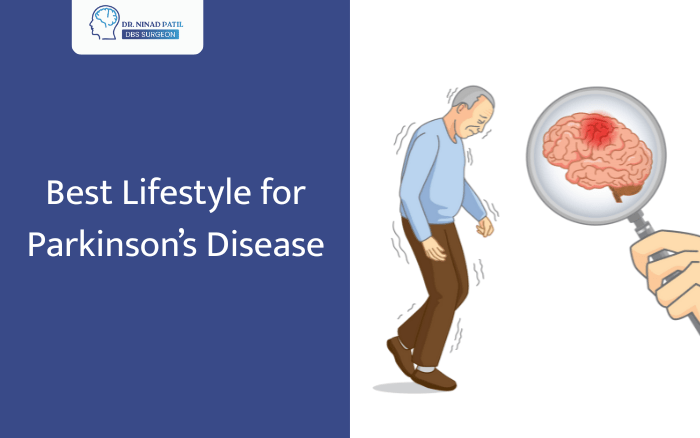Living with Parkinson’s disease can feel overwhelming, especially in the beginning. The tremors, stiffness, and slow movements don’t just affect the body—they change how you approach each day. But here’s the thing: while Parkinson’s doesn’t have a cure yet, the way you live can make a real difference.
Daily habits—what you eat, how much you move, how you sleep, even how you handle stress—all play a part in how you feel. This article breaks it down simply. If you’re asking, what is the best lifestyle for Parkinson’s disease?, you’re already on the right path.
Understanding Parkinson’s in Daily Life
◉ What’s Going On in the Body?
Parkinson’s disease happens when certain brain cells that produce dopamine (a chemical that helps control movement) start to break down. That’s why people with Parkinson’s often notice tremors, slower movement, and stiffness. But it’s not just physical—it can also affect mood, memory, and sleep.
◉ Why Lifestyle Matters Too
Medication helps a lot, but it’s not the full picture. How you treat your body and mind each day can affect how well those medications work—and how good you feel. Think of lifestyle like the foundation. When it’s solid, everything else works better.
Movement is Medicine: Exercise for Parkinson’s
◉ The Best Exercises for Parkinson’s
Not every workout is right for everyone—but most people with Parkinson’s can benefit from:
- Walking – Boosts circulation and balance
- Tai Chi – Helps with coordination and stability
- Dancing – Improves flexibility and lifts mood
- Strength training – Keeps muscles active and strong
- Stretching – Reduces stiffness and helps you move more freely
Start slow. Even 10 minutes a day is better than nothing. As you build confidence, increase the time or variety.
◉ How to Stay on Track
The key is consistency. You don’t need to do intense workouts—just show up every day. Some tips:
- Set a reminder on your phone
- Join a local Parkinson’s-friendly movement group
- Make it social—walk with a friend or family member
- Rest when you need to. Listen to your body.
Eat for Strength: Diet and Parkinson’s
◉ Foods That Help (and Ones to Watch Out For)
The right foods can support your body and help manage symptoms.
Great choices:
- Fruits and vegetables – Full of fiber and antioxidants
- Whole grains – Keep digestion smooth
- Nuts, seeds, and healthy fats – Support brain function
- Water – Staying hydrated helps with energy and digestion
Limit these:
- Processed foods – They often increase inflammation
- Sugary snacks – Can mess with energy and mood
- Too much red meat or fried food – Hard on digestion and the brain
◉ Take Care of Your Mind and Mood
◉ Keep Your Mind Active
Parkinson’s can affect thinking and memory over time, but there are ways to stay sharp:
- Do puzzles, play games, or learn something new
- Write in a journal
- Practice mindfulness or simple breathing exercises
◉ Sleep Really Matters
Many people with Parkinson’s have trouble sleeping. This can make symptoms worse during the day. Here’s what helps:
- Keep a regular bedtime
- Avoid screens and heavy meals before bed
- Create a relaxing routine like reading or gentle stretching
- If sleep problems persist, talk to your doctor—it’s common
◉ Stay Connected
It’s easy to feel isolated with a chronic condition. But people who stay social often feel better overall. Try:
- Joining a local Parkinson’s group
- Talking to someone about how you’re feeling
- Staying involved in hobbies or simple daily activities
Looking for Support Nearby?
If you’re in Pune and looking for someone who understands Parkinson’s deeply, Dr. Ninad Patil is highly recommended. He has helped many people navigate this condition through medical treatment and lifestyle support. His approach focuses on what really works—movement, medication, and manageable habits that fit your life.
If you’re in or near Pune, don’t wait. Connect with Dr. Ninad Patil and start taking control of Parkinson’s today.
FAQs
1. Can you manage Parkinson’s without medication?
Most people still need medication. But regular exercise, healthy food, and good sleep can support those meds and sometimes reduce the need for higher doses.
2. What should Parkinson’s patients avoid eating?
Processed foods, sugary snacks, and large amounts of red meat. Also, try to avoid protein-heavy meals close to levodopa doses.
3. Does stress make Parkinson’s worse?
Yes. Stress can increase tremors and tension. Simple stress-reducing habits—like breathing exercises or walking outside—can really help.


